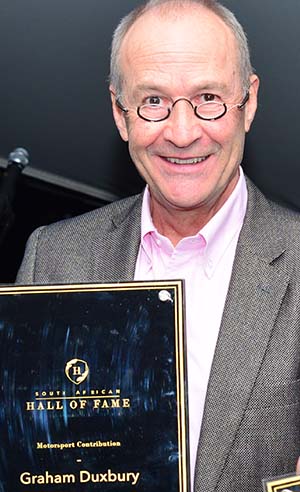The 2024 Formula One season is proving to be extremely competitive. Red Bull seem to have lost its advantage while there has been a resurgence of McLaren, Mercedes-Benz and Ferrari.

Graham Duxbury
Many fans believe F1’s “excitement barometer” is based on the number of different winners and the closeness of the championship chase.
Based on this metric, the 1982 season was probably the most exciting, featuring eleven different winners from seven teams. And, as is likely in 2024, the team that won the constructors’ championship did not include the winner of the drivers’ title in its lineup.
In 1982 the Williams team appeared to be in the ascendant with a formidable driver pairing in Alan Jones and Carlos Reutemann.
However, shortly before the season’s opening Grand Prix in South Africa, Jones unexpectedly retired. Williams signed the largely unknown Keke Rosberg to fill the void.
The SAGP was won by Alain Prost for Renault, with Reutemann second. Rosberg finished a creditable fifth.
At the Brazilian Grand Prix, Nelson Piquet (Brabham) took the chequered flag first ahead of Rosberg. However, both were disqualified due to underweight cars. This promoted Prost who thus scored his second win of 1982.
Williams was again plunged into disarray as Reutemann retired. The Falklands War was being waged and being an Argentinian his position within a British team was untenable. Irishman Dereck Daily was drafted in to fill the void.
In 1982, former world champion Niki Lauda, who had retired in 1979, was persuaded to return to F1. He dispelled doubts about his capability by winning the next race, the Long Beach GP in the US. Rosberg was again second.
The fallout from the disqualifications in Brazil led to a boycott of the San Marino GP by many teams including Williams and Brabham. With the Ferraris of Gilles Villeneuve and Didier Pironi in the lead, a team order to slow was ignored by Pironi who passed on the last lap. An infuriated Gilles vowed to ”never speak to Pironi again”. They were prophetic words, as Gilles crashed fatally during qualifying for the Belgian Grand Prix at Zolder two weeks later
At Zolder, Rosberg looked set for victory, but a mistake let McLaren’s John Watson through to win.
Riccardo Patrese won the Monaco Grand Prix for Brabham. It was his first F1 win. The highlights of the race were the four lead changes over the last three laps.
At the Detroit Grand Prix John Watson won again, while the Brabham team posted a “one-two” finish at the Canadian GP with Piquet leading Patrese. Of interest was their different power units. Nelson’s car featured a BMW turbo unit, while Ricardo had a normally-aspirated Cosworth V8.
Ferrari, with Pironi at the wheel, then had a run of good fortune, dominating the Dutch Grand Prix at Zandvoort and claiming second behind Lauda’s McLaren at the British Grand Prix at Brands Hatch. Here, Pironi’s new teammate, Patrick Tambay, claimed his first podium.
After a third-place at the French Grand Prix at Paul Ricard – behind the Renaults of Rene Arnoux and Prost – Pironi led the championship standings ahead of Watson, Prost, Lauda and Rosberg.
The German Grand Prix at Hockenheim provided more heartbreak as Pironi broke both legs in a practice crash, ending his career. Tambay provided Ferrari with some solace by winning.
The biggest surprise came at the Austrian Grand Prix at the Osterreichring where Elio de Angelis won in an unfancied Lotus by just 0,05 seconds from Rosberg.
The Swiss Grand Prix was held at Dijon in France. where Rosberg won his first and only race of the season. It was tight, however, as his Williams passed Prost’s Renault on the last lap.
Although Mario Andretti – replacing the injured Pironi – put his Ferrari on pole for the Italian Grand Prix at Monza, the tifosi were denied a win by Arnoux who brought his Renault home ahead of the two Ferraris. Mario’s third place represented his last points score in F1.
The championship reached a crescendo at the season finale at Ceasar’s Palace in Las Vegas. It was a close contest between Watson and Rosberg.
As it happened, Watson finished second, behind the final new winner of the season, Michele Alboreto in a Tyrrell. But Keke’s fifth place secured the title. He had only won once, but a consistent run of points finishes was the decisive factor. Perhaps fittingly, the constructors’ championship went to Ferrari.
